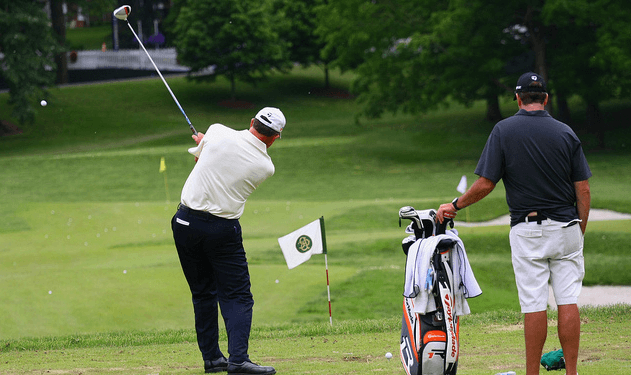
Your Elite Player Game Improvement Plan
Reaching your potential is not just about skills development, it’s about your motivation and the strength of your plan. Without a destination in mind, and the journey mapped out, you’ll struggle to motivate yourself to get there.
What do you ultimately want to achieve? What level of play do you realistically think you can reach by the end of next year? What tournament do you think you can win? What handicap would you like to have? This is called your vision or outcome goal.
The common mistake of goal setting
The mistake that most people make with goal setting, is that they don’t break this down further into smaller, more achievable pieces. They try to do too much at once or they don’t know enough about their game to know what needs to be done. A goal that is too distant quickly gets put off or just forgotten about. The human brain is continually looking for focus and direction and long-term goals don’t really provide that.
To reach your best, you need to focus on incremental goals. It’s the aggregation of all these small goals that will take you to your bigger, outcome goal.
This philosophy of continual improvement is also known as “Kaizen”, a Japanese word meaning “good change”. Dave Brailsford the coach of the Tour de France winning British cycling team, calls it “The Aggregation of Marginal Gains”.
Small goals get you on the path to better golf
The idea is that making small incremental changes, compound into longer-term changes in your behavior i.e. better golf. From achieving these smaller goals, you’ll be a lot more focused and your small accomplishments, will build layers of confidence. You’ll know that you’re getting closer to your ultimate goal.
The first step (after determining your outcome goal), is to understand where you are now. Where is your game in relation to where you want to go? E.g. If you want to win the club championship, what score do you think you will need to shoot and what is the area of your game that is furthest away from that score?
Let’s say your outcome goal is to become a scratch handicap but your current driving accuracy is 50%. On average a scratch golfer has a driving accuracy of 65%. In this scenario, you might want to set an incremental or performance goal of reaching 60% accuracy in 90 days. Performance goals must be measurable and 90 days is a good time-frame.
The next part of the plan is to figure out exactly what you need to do reach your performance goal. i.e. what specific practice drills for golf will you fill your time with? This is your action list or process goals. The things you will actually “do” to reach your goal. This would be a combination of block, random and competitive skills practice. Practice challenges will keep you motivated and aware of your progress.
Here are the steps again:
- Identify your long term “vision”, which is where you ultimately want to get to. This is your outcome goal.
- Now determine what you can do in the next 12 weeks to get you closer to your vision.
- For example, if you’re goal is to win a certain tournament, you’ll probably have a good idea of what score you need to shoot. So what do you need to improve most, to reach that goal? Is it driving? Long irons? Short irons? Short game? Or putting? Set an achievable 3 month goal around that area of the game. This could be something like “hit at least 10 fairways per round.” This is your performance goal.
- Now you need to work out how you’re going to do it. Work out how much time you can spend per week for the next 12 weeks on your goal. What drills and challenges are you going to do during this time? These are process goals. For the better driving performance goal, you might pick drills from my practice drills eBook.
- Share your goal with your coach or people who support you. Perhaps do weekly check-ins to share your progress. If you’re not getting closer to your goal, perhaps change how you are going about your improvement.
Thanks for reading. I hope you decide to leverage this model and make great strides towards your long-term goals.
Photo by nonorganical


